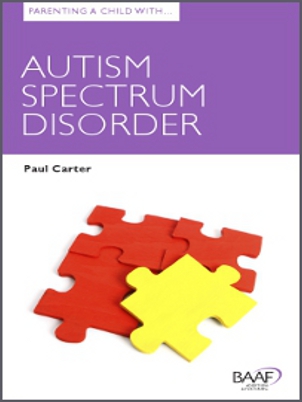
Parenting Matters: Parenting a child with autism spectrum disorder
Many adopted and looked after children experience particular health issues or other difficulties, sometimes due to their early experiences of loss and lack of care. This book focuses on autism spectrum disorders. If you are looking to adopt a child, this guide will give you practical and realistic information on what this condition may mean for your child, along with their symptoms, prognosis and treatment.
This book provides expert knowledge coupled with facts, figures and guidance presented in a straightforward and accessible style.
A foster carer/adopter also describes what it is like to parent children with autism spectrum disorders, sharing their parenting experience and offering useful advice.
This book is part of CoramBAAF’s Parenting Matters series which explores many of the health conditions commonly diagnosed in looked after children.
See more titles in this series.
Who is this book for?
A useful book for adopters, those thinking about adopting, foster carers, social work practitioners and all those involved in the care of looked after children. The combination of expert information and first-hand experience will help readers gain knowledge and understanding and make informed decisions.
What you will find in this book
The first half of the book examines autism spectrum disorders, including their symptoms, prognosis and treatment. It outlines specific parenting tasks, education issues, and where to get help for your child and family.
In the second half, two adopters describe their experiences of parenting children with autism spectrum disorders, and how this affected, and continues to affect, day-to-day family life.
‘Our journey, still in progress, has not just been about learning to support a child with autism, but also about how to achieve a work–life balance, and how to enable the well-being of a sibling groups of three. The impact of Neil on his siblings has been great, and we can only hope it is viewed by them as life-skill building rather than with resentment. We were bemused as to why so much emphasis was placed on our health when we put ourselves forwards to be adoptive parents. We now know why, and the impact on our health has been considerable, yet equally, it has been the making of our lives, and we would not change it.’ Alan Hughes
Read the contents page
Author
Paul Carter worked in Walsall for 18 years as a consultant community paediatrician where, apart from taking the lead in immunisation, his specialist interest was in neurodevelopmental disorders and school health. He has a long-standing interest in both the emotional and psychological aspects of children’s behaviour and the understanding of the neurophysiological differences that affect children with ASD, ADHD, epilepsy and similar problems. Since his retirement in 2010, he has worked in private consultancy practice, mainly looking after children with severe autism spectrum disorders.
NOW AVAILABLE AS AN EBOOK!
This title is now available in digital-only format for immediate access. Purchases are held in your own personalised online library and accessed via your browser or through the app on your phone or tablet. Questions about eBooks? Check out our FAQs
Sorry, but this book is currently out of stock.
Reviews
This is an excellent little book. There are large numbers of books about autism and ASD available but few that address the complications of autism in children who have been in care or adopted. The advice is simple, straightforward and practical. It doesn’t gloss over the real challenges that parents face on a daily basis in parenting a child with autism.
Youth in Mind website
The second section was written by people who adopted children later diagnosed as having autism spectrum disorder. These are very powerful chapters…[and] anyone reading these chapters could not underestimate the demands which might be placed on them…They may not, however, find it easy to see what rewards there might be. Overall, this compact book achieves its aim and would help prospective adopters and carers make informed choices about whether they can are for a child with autism.
Helen Ruffell, retired social worker, Professional Social Work
